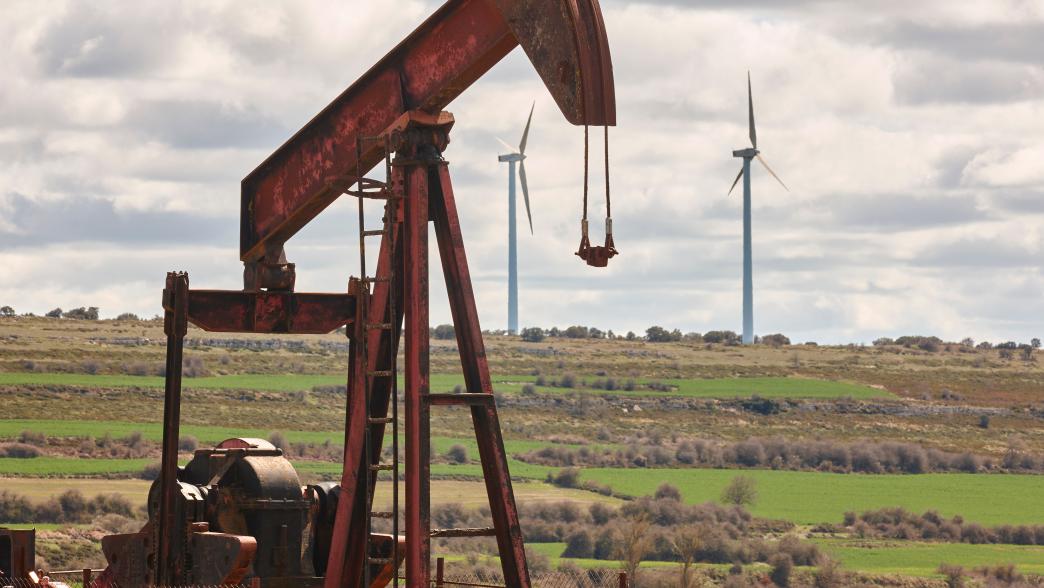
State Oil Companies Betting Billions Against the UAE Consensus
After the COP28 UN climate conference in Dubai unprecedented attention has finally landed on the hidden half of the world’s oil and gas industry: national oil companies (NOCs). These state companies produce half the world’s oil and gas, yet their finances and operations are often hidden from the view of their countries’ own citizens.
Bringing to light and engaging with the operations of NOCs is now crucial and urgent. The landmark agreement by 195 countries in Dubai—the “UAE Consensus”— calls for a “transition away from fossil fuels.” Having slow-walked climate action for decades, the richest and most polluting countries have left the global carbon budget so tight that even NOCs in the poorest countries have little time to transition.
(Meanwhile NOCs’ efforts to reduce carbon and methane pollution from the production of oil and gas are insufficient. The Oil and Gas Decarbonization Charter announced in the early days of COP28 falls well short of what is needed to reach the Paris Agreement goals.)
The COP decision sends a clear message to national oil companies and their governments: look to a greener future. Instead NOCs are on course to spend $1.8 trillion in the coming decade to produce fossil fuels. This is mostly public money funding oil and gas in amounts far beyond levels consistent with a 1.5C upper temperature increase limit.
In essence, this money is a big bet that energy transition fails. More than two-thirds—$1.2 trillion—of this spending will only break even if the world consumes oil and gas at a rate that will cause catastrophic climate change. Not only does the UAE Consensus make this bet look riskier but governments with shrinking pockets will be less able to bail out NOCs whose bets turn bad. Across countries with NOCs, the average government debt as a proportion of gross domestic product doubled between 2011 and 2021.
How might NOCs and their governments respond? They must first recognize that there can be no more business as usual. Either the global transition fails to meet the UAE Consensus and the resulting climate crisis hits hard, or the transition erodes fossil fuel demand on which these countries depend.
From there, they should assess how their strategies will fare in a range of energy transition scenarios. How would revenue shortfalls affect the economic health of their countries? Saudi Aramco and ADNOC enjoy plentiful, low-cost oil that positions them to be among the “last producers standing.” But most NOCs don’t.
Where profit hinges on global climate inaction, NOCs must pursue new pathways or right-size their spending plans; and if they don’t or can’t, their governments should tighten the reins.
Before COP28, we examined the public statements of 21 leading NOCs and found that more than half hadn’t even acknowledged the threat of the global energy transition to their business models and the fiscal well-being of their countries. And fewer than a quarter had articulated plans to mitigate this risk. The global call to transition away from fossil fuels may now change these attitudes.
Amid a largely discouraging picture, some positive examples stand out. Colombia’s Ecopetrol has disclosed a detailed analysis of transition risk and the use of risk assessment tools. This is bold—the company’s portfolio relies heavily on high-cost oil that won’t make economic sense in a greener future—but acknowledging risk and identifying options are the first steps to progress.
Yet with few obvious options for replacing the revenues and energy that oil and gas bring, political leaders and NOC executives in such countries will likely remain hooked on hydrocarbons. They need support to take these steps.
NOCs and their governments—especially the lowest-income producers with the least ability to transition their economies on their own—shouldn’t bear the whole burden of transition. Wealthy, heavily polluting countries should be the first and fastest to phase out their production—and to finance transition in lower-income countries where citizens disproportionately suffer climate impacts and have contributed far less to warming. Without concrete commitments by wealthy countries on this front, the call for a “just and equitable” transition in the UAE Consensus risks falling flat.
The UAE Consensus requires both NOCs and the international community to respond, and to do so in this crucial decade.
National oil companies are making risky bets amid the energy transition
Authors

Patrick Heller
Chief Program Officer

Andrea Furnaro
Senior Policy Analyst

David Manley
Lead Economic Analyst – Energy Transition
